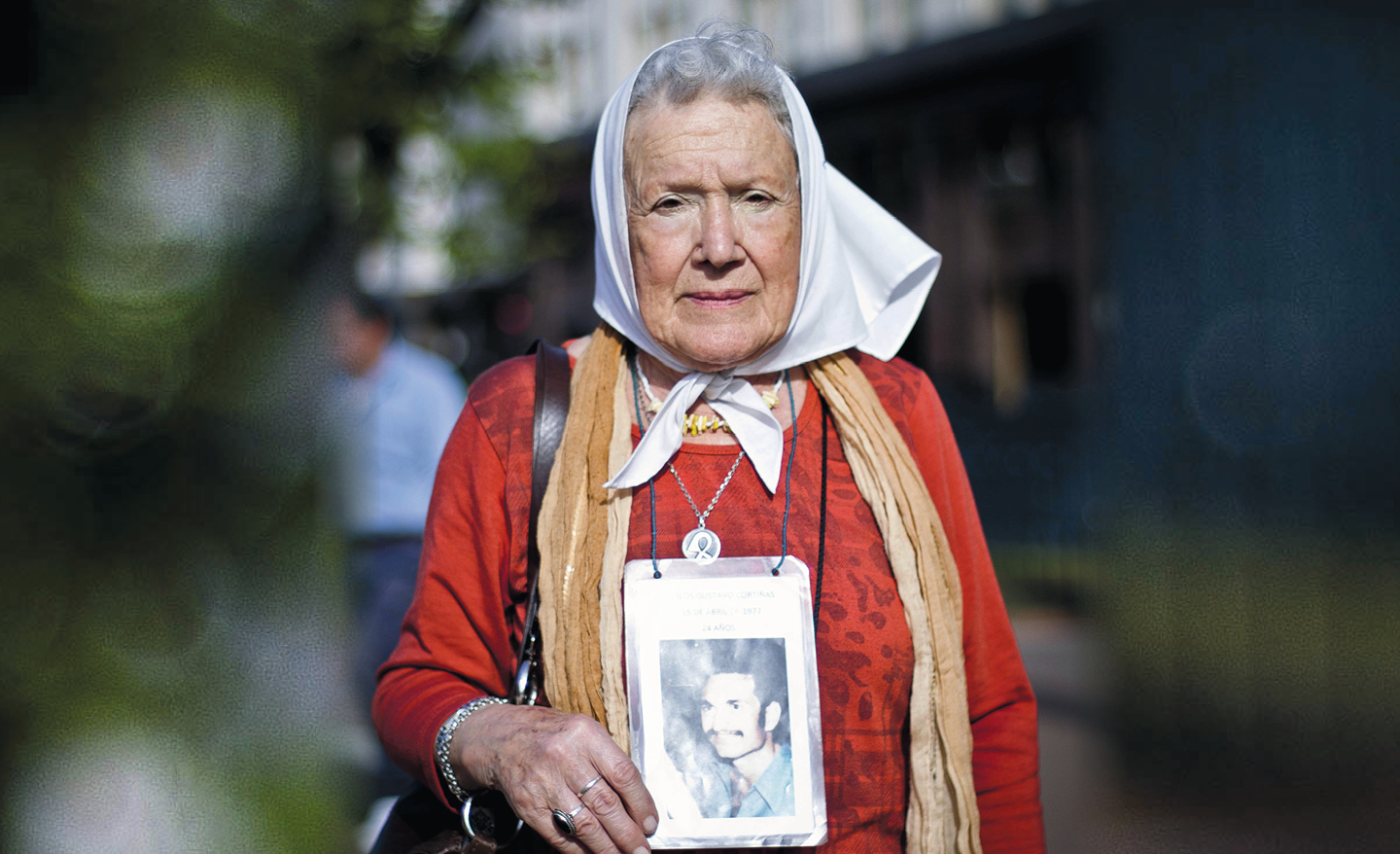Norita and the Mothers
Producer Sarah Schoellkopf ’97 brings the story of an influential Argentinian activist to audiences across the Americas.
Nora “Norita” Morales de Cortiñas was just a traditional Argentinian housewife until the 1977 kidnapping and disappearance of her 24-year-old son, Gustavo, by Argentina’s military dictatorship catapulted her into what would become a decades-long political fight for justice.
Her incredible story of heartbreak, activism and resilience is now being shared with the world through the feature-length documentary NORITA, co-produced by Sarah Schoellkopf ’97, founder of the production company DoctoraStories.
The film, directed by Jayson McNamara and Andrea Tortonese, chronicles the evolution of Morales de Cortiñas from concerned mother to one of Latin America’s most well-known and influential activists through the use of archival footage, talking head interviews and animated recreations. Thoughtful and generous, the movie brings to life a part of modern history many are unlikely to learn about in school.
Between 1976 and 1982, Argentina’s military dictatorship kidnapped and disappeared thousands of activists who spoke out against the government. Motivated by the hope of finding Gustavo and a desire to honor his passions, Morales de Cortiñas made his cause her own. Alongside the Mothers of the Plaza de Mayo—a group of homemakers, mothers and wives who found themselves in similar situations—Morales de Cortiñas began to campaign for the return of the abducted and a recommitment to civil liberties.
As days became weeks, months, years and, eventually, decades, she continued to engage in peaceful protest and political organizing. Her quest to discover the truth about those abducted grew to include larger questions of democracy, justice and women’s rights. While she never did find her son, Morales de Cortiñas and the Mothers outlasted the dictatorship and emerged as triumphant symbols of human rights, rebellion and protest.
Schoellkopf, who screened NORITA for faculty, staff and students on campus in April, first learned about Morales de Cortiñas while she was studying Hispanic and Latin American studies and sociology at Conn. She was so moved by the story and the courage displayed by Morales de Cortiñas and the Mothers that she made them the focus of her Toor Cummings Center for International Studies and the Liberal Arts senior integrative project. In 1998, she received a Fulbright grant to the Universidad de Buenos Aries to continue her research, and then, as a Ph.D. student in Spanish and Portuguese language and literature at the University of California, Berkeley, she made them the focus of her doctorate and conducted field research with the Mothers in the 1990s and 2000s.
“Basically this is my entire CISLA project, my Fulbright project, my dissertation project on screen,” she told the Conn audience.
Schoellkopf, who also co-produced the 2021 documentary Ferguson Rising, which premiered at Tribeca, and serves as president of the Eileen and Fred Schoellkopf Family Foundation, said she is thrilled that Morales de Cortiñas’s story is finally being shared with as many people as possible, especially in Central and South America.
“It’s been in almost 400 theaters, community centers, colleges, universities, activism areas all over Latin America,” she said. “We’ve been to several festivals. It’s been amazing.”
Schoellkopf pointed out that, while the seeds of the film date back over 25 years and it chronicles events dating back to the 1970s, NORITA is not a project of a bygone era.
“You’re going to feel like you’re watching today’s news,” she promised in a brief address before the campus screening. “We are seeing the same language they used then to demonize people now.”
Despite the tenor of the time, traveling with the film has given Schoellkopf plenty of cause for optimism.
“Students have a voice,” she asserted. “Showing the movie has been an overwhelming experience. People’s reactions to it are why I’m so passionate about it. I’m very proud of this film and how people have received it.”
After the showing at Conn, one student shared that her father, who had grown up in Latin America, was excited and tearful upon learning he’d soon see NORITA at his local community center.
“Thank you so much for this,” the student told Schoellkopf. “This means so much to me and my family.”
